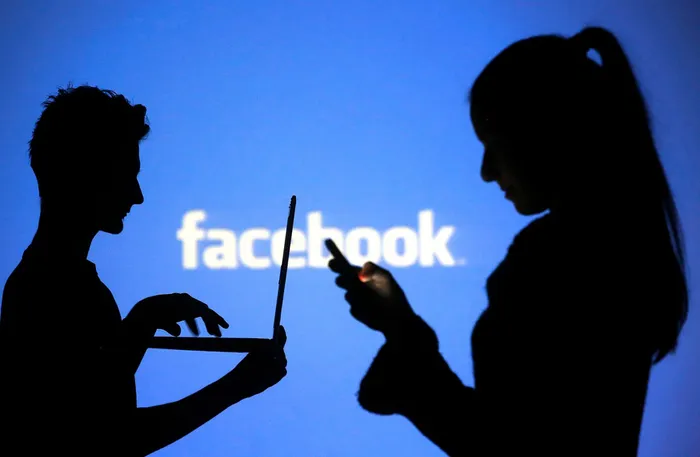
Former Facebook employee Frances Haugen spoke to a Senate subcommittee this week, alleging that her ex-employer has amplified extremism and contributed to self-loathing among users, especially teen girls.
Undoubtedly, some people will see this latest burst of horrifying news about the social networking giant and consider deleting their accounts. Facebook does allow you to do so, and says your data will be permanently deleted. But truly extricating yourself from Facebook isn’t as easy as it sounds. And even if you do manage to opt out of the company’s services, including Instagram and Whatsapp, it’s likely Facebook will still have and continue to receive data about you.
Social life still happens on Facebook
First of all, you may not easily be able to extricate your social and professional life from Facebook and its other properties—like Instagram and WhatsApp—without a lot of planning. During Monday’s Facebook outage, businesses that use Facebook and Instagram to advertise and communicate with customers found themselves suddenly cut off. Everyday users fretted they might lose their only copies of family photos or conversations (old activity, at least, can be exported from Facebook before you delete). In places where WhatsApp is the dominant texting service, people didn’t have a way to communicate with friends, family, and business associates.
So, if your business’s customers, the PTA at your kids’ school, or your elderly relatives use Facebook, it might not be simple to delete your account without having to rely on other people to relay messages for you.
If that’s not your situation, you still may want to reach out to anyone whose up-to-date contact information you don’t have outside of Facebook and let them know you’re leaving the platform. Of course, you’ll likely have to use Facebook to do so. If you have used Facebook to set up a Page for your business, band, or book club and want that to remain accessible, you’ll also need to turn it over to somebody else, or it will disappear along with your account.
Most sites use Facebook Login
Then, you’ll also still have to think about whether you use Facebook to log in to other sites, apps and even smart devices, and whether you’ll be able to access those accounts after you get rid of Facebook.
“You won’t be able to use Facebook Login for other apps you may have signed up for with your Facebook account, like Spotify or Pinterest,” Facebook warns. “You may need to contact the apps and websites to recover those accounts.”
If you have a virtual reality device from Facebook’s Oculus line, you should also be aware that you could lose apps and even money on the device when you delete your account.
“If you use your Facebook account to log in to Oculus, deleting your Facebook account will also delete your Oculus information,” according to the company. “This includes your app purchases and your achievements. You will no longer be able to return any apps and will lose any existing store credits.”
Even so, Facebook still will have data on you
But assuming you’re willing to take some time to make sure your social and professional life will withstand your departure and reconfigure any apps tied to your account, deleting your account will mean Facebook will no longer have any information about you, right? Not exactly.
For one, an enormous number of websites and apps embed what’s called the Facebook Pixel. The name refers to when websites would literally embed single-pixel images fetched from third-party tracking services as a way to record information about visitors to their sites. Today, the Facebook Pixel is a custom bit of code that tracks what you do on third-party sites and sends that information to Facebook.
It’s mostly designed to target you with Facebook ads based on your activities on third-party sites and apps, but even if you don’t have a Facebook account, the Facebook Pixel will still load and send identifying data to Facebook. That includes your IP address and the Pixel-enabled websites you’ve visited.
Even if you lock down your browser with anti-tracking plugins and enable the latest anti-tracking software on your phone to stop the Facebook Pixel from following you around, your data could still end up with Facebook. For one, the company allows businesses like brick-and-mortar stores to upload customer information like names, phone numbers, and email addresses to Facebook as a way to track how effectively the company’s ads are motivating offline purchases. Since there’s no way for them to know if you’re a Facebook user, they’ll be sending this data to Facebook even if you’ve shuttered your account.
Facebook also allows users to upload their cellphone contacts to Facebook and other apps like WhatsApp (which, to its credit, it says it doesn’t permanently store the numbers or share them with its corporate parent). This means your contact information could still be uploaded by anyone who stores it in their phones.
The Facebook outage Monday gave everyone a sense for a few hours what life would be like without Facebook, Instagram, or WhatsApp. For some, it was the butt of a joke, and for others it was a personal or professional communications nightmare. But even if you enjoyed the time away from Mark Zuckerberg’s empire, extricating yourself in real life likely won’t be quite so simple.
About the author
Steven Melendez is an independent journalist living in New Orleans.
